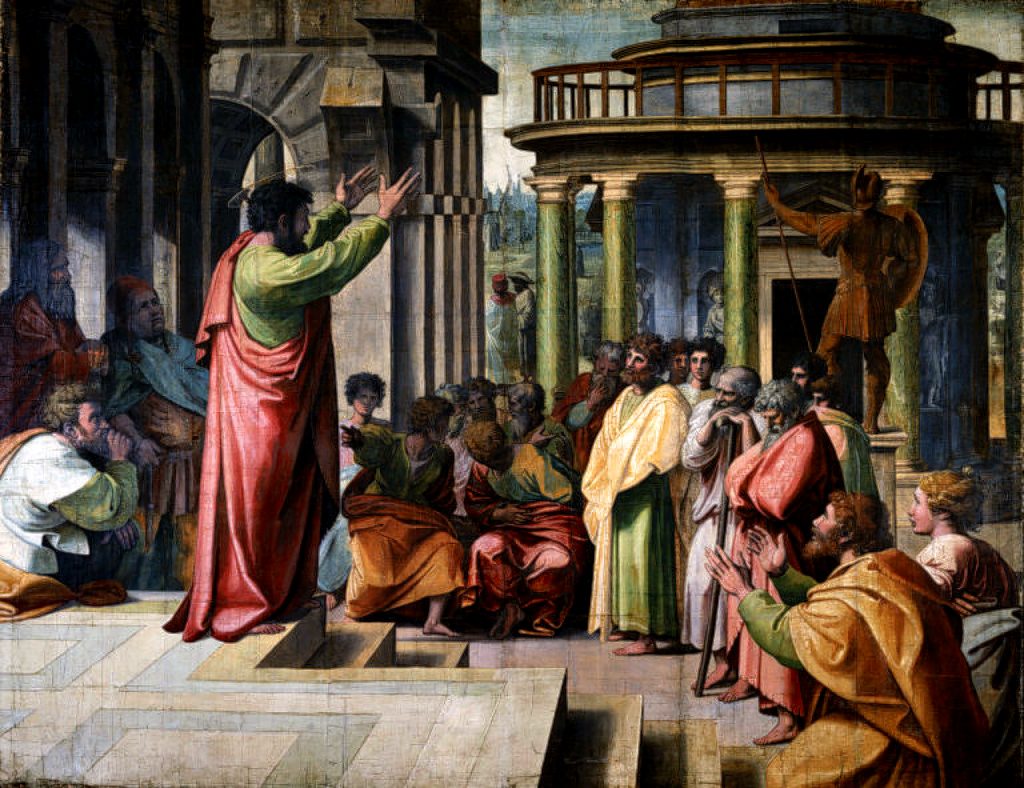In my previous article, we established that there is one God, one way to Him and one truth – the person and work of Jesus Christ. This requires us to share the Gospel with all people, those of another and/or no religion.
Maintaining Respect at All Times
It’s easy to be swept up in the heat of the moment when witnessing. Our passion may see us forget to maintain a high level of respect and love for those we converse with. It’s imperative to listen as much as you speak. This demonstrates that you care about the person and what they have to say rather than viewing them as a mere “target to convert”. Kindness must be maintained (James 1:19-20) whilst having sensitivity to their culture and beliefs (below).
Being All Things to All Men
When evangelism is the topic of conversation within Christians circles, you’ll often hear the phrase “we must become all things to all men.” What is the sentiment behind those words? What exactly was Paul communicating to the Corinthians? We must first humble ourselves and meet those we’re talking to at their level of understanding. In demonstrating love, we may observe some of their customs and traditions which are not antithetical to our faith (1 Corinthians 9:19-21). This is all done without compromising the message of the Gospel and with the desire that they may believe in the Gospel of their salvation.
To the weak, I became weak, that I might win the weak. I have become all things to all people, that by all means, I might save some. I do it all for the sake of the gospel, that I may share with them in its blessings.
1 Corinthians 9:22-23
Learning from Paul in Athens
Luke’s account of Paul’s time in Athens details my favourite evangelistic effort in the Acts of the Apostles in chapter 17 from verse 16-34. The climax of Paul’s visit was his address to the people at the Areopagus (or Mars Hill), describing how he masterfully witnessed before the crowd from verse 22-34. We can breakdown the apostle’s approach into the framework below.
- Know their beliefs
- Acknowledge what is commendable
- Challenge the assumption(s) and reveal the truth
1. Know Their Beliefs
Now while Paul was waiting for them at Athens, his spirit was provoked within him as he saw that the city was full of idols.
Acts 17:16
While staying in Athens, Paul observed that its citizens practiced idolatry. The city was swarming with idols. One in particular caught the apostle’s attention – that which was inscribed “to an unknown God”. From this, Paul inferred that the Athenians were a religious people, but oblivious of whom they were looking for in their hand-crafted idols.
2. Acknowledge What is Commendable
Paul commenced his speech by commending the people to whom he was witnessing. In stating “I perceive that you’re very religious” (v.22), he broke any barriers of hostility which may have existed and met them at their level of understanding.
3. Challenge The Assumption(s) and Reveal the Truth
He then proceeded to direct his challenge toward their own assumptions, revealing to them the falsity of their gods and the reality of the Creator, Yahweh (v.23-29) to whom they were all accountable (v.30). Paul then arrived at the crux of his message, issuing a call to repentance, casting the spotlight upon the person, work and resurrection of Jesus Christ.
because He has fixed a day on which He will judge the world in righteousness by a man whom he has appointed; and of this, He has given assurance to all by raising Him from the dead.
Acts 17:31
There is no “one-size-fits-all” approach to evangelism. However, by being all things to all men and learning from Paul’s example in Athens, we have a useful framework by which we may engage those of different religions as explored below.

Islam
Know their beliefs – Jesus is a prophet, not God the Son (God incarnate).
Acknowledge what is commendable – the respect afforded to Jesus as an esteemed prophet.
Challenge the assumption(s) and reveal the truth – If Jesus is just a prophet, why does He declare the names of God for Himself, perform acts which only God can do and receive the glory of God?
Surah 57:3 identifies Allah as the “First and the Last” as does the Old Testament where speaking of God (Isaiah 44:6).
Can a mere prophet claim to be the first and the last, an identification ascribed to God? Of course not, but Jesus does.
When I saw him, I fell at his feet as though dead. But he laid his right hand on me, saying, “Fear not, I am the first and the last, and the living one. I died, and behold I am alive forevermore, and I have the keys of Death and Hades.
Revelation 1:17-18
Only God can offer ultimate forgiveness of sins. This was acknowledged by David in Psalm 51:4 and demonstrated in Surah 3:135 which asks “and who can forgive sins except Allah?”
If Allah is the only one who can offer true forgiveness, a mere prophet cannot do the same, yet Jesus does. In Mark 2, the religious leaders accused Jesus of blasphemy where He declared that the sins of the paralytic were forgiven. He then demonstrated omniscience in “knowing their thoughts” and answering “the Son of Man has authority to forgive sins” (v.11).
Jesus also claims to be the final judge (a role reserved for Allah in Surah 6:114; 40:12 ; 89:21-23 as well as God in Matthew 25:31-32). Jesus claims to be “the Truth” John 14:6, share God’s glory and honour (John 5:19-24)– also in eternity past (John 17:5). Thus, He received worship (Matthew 2:11; 14:22-33; John 9:38; Luke 24:52 and John 20:28).
Jesus claimed the titles of God, performed the deeds of God, shared the glory and honours of God, making Him worthy of the worship He received. These are not characteristic of a great prophet. They are characteristic of God. This validates who Jesus was/is and all He did. Christ is the only way to God (Jehovah), the Truth and the source of eternal life.

Other Worldviews
Space will not permit me to dive into other religions and worldviews such as Judaism and Atheism. For the former, pointing them to the fulfilment of Old Testament prophecies, symbols and rituals in Jesus Christ is key. Isaiah 53 is a great place to start and it is also worth explaining the Messianic Psalms, and certain passages in the book of Hebrews.
For Atheists, the existence of God would be the natural starting point. Demonstrate how it is both a rational and logical necessity for the world and reality as we know it. The classical model of apologetics modelled after St Augustine’s approach is extremely helpful alongside St Thomas Aquinas’ traditional proofs, the intelligent design theory and general revelation (Psalm 19:1-2; Romans 1:20). Other matters such as the issue of suffering (Pulse Podcast: Why Does a Good and Perfect God Allow Suffering ) are also crucial.
Closing Thoughts
Religion can be a deeply sensitive topic of conversation. It calls into question the validity and truthfulness of the faith one has devoted their life to. For the Atheist, believing in the existence of God and the truth of Christianity is also an emotional ordeal. It means that they are accountable to God, will face judgement upon death and are confronted by eternity. Before and after we have these discussions, we must pray. It is God alone who regenerates the spiritually dead, gives sight to the blind that so they may perceive their need for a Saviour – Jesus Christ- to whom they must submit as Lord. Keep praying, keep learning and keep sharing.